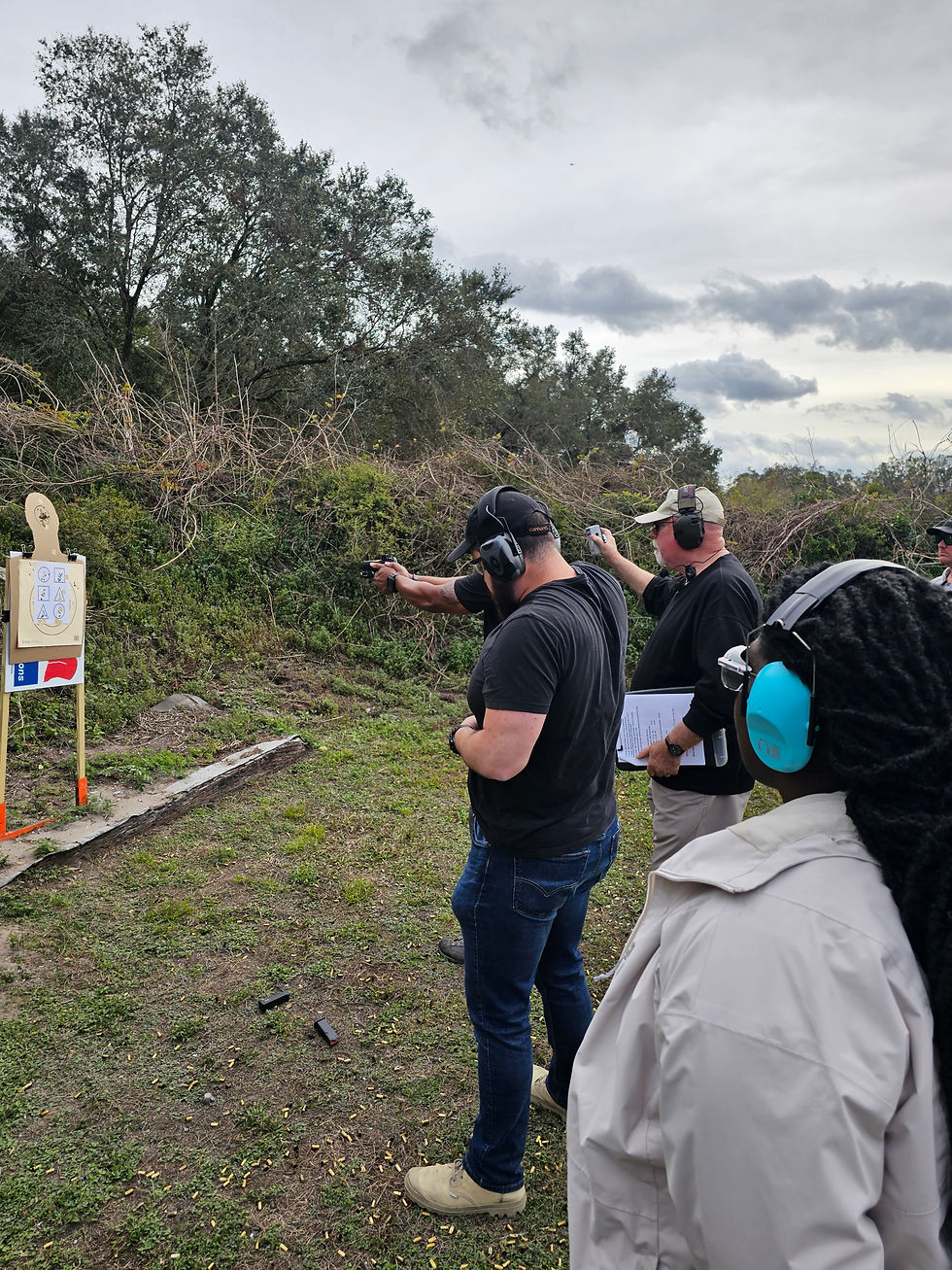
Essential Training for Responsible Firearm Ownership
- DEFENDER87

- Feb 17, 2025
- 3 min read
Updated: Feb 24, 2025
In today's society, responsible firearm ownership requires more than just purchasing a weapon. Firearm ownership comes with significant responsibilities, and proper training is essential for anyone who wishes to own and operate a firearm safely. This training equips owners with the knowledge they need to handle firearms correctly and ensures they recognize the importance of gun safety. In this blog post, we will explore the essential aspects of training for responsible firearm ownership, including understanding state laws, firearm safety, and advanced defensive strategies.
Firearm Training: The Basics
Firearm training is not just about learning how to shoot a gun; it encompasses a broader understanding of firearm safety, maintenance, and laws. Beginners should start with the foundational principles of firearm handling. This includes learning how to safely store firearms, recognizing the legal aspect of ownership, and understanding various types of firearms.
Courses can vary significantly from one provider to another, so it is vital to seek reputable training programs. Many states have specific requirements for firearm training programs, and these can depend on whether you are applying for a concealed carry permit or simply looking to enhance your skills.

Importance of Safety Protocols
Safety is paramount when it comes to firearm ownership. One of the first lessons taught in firearm training is the universal safety rules that should always be followed:
Treat every firearm as if it is loaded.
Never point a firearm at anything you do not intend to shoot.
Keep your finger off the trigger until you are ready to shoot.
Always be sure of your target and what is beyond it.
Understanding and implementing these protocols can help prevent accidental discharges and ensure the safety of everyone involved. According to the National Safety Council, firearm-related accidents have decreased significantly due to increased training and awareness, highlighting the importance of these safety protocols in preventing mishaps.
Understanding Local and Federal Laws
Each state has its own laws governing firearm ownership, and understanding these laws is crucial for responsible ownership. Training programs often include a module on local and federal laws that pertain to firearms. It is vital to be aware of:
Purchasing guidelines
Concealed carry laws
Safe storage requirements
Reporting stolen firearms
Failing to comply with these laws can lead to serious legal consequences. Moreover, being informed can prevent potentially dangerous situations. The resources available through communities and online platforms can assist in educating individuals about the ever-evolving legal landscape surrounding firearms.
Advanced Defensive Tactics
For those interested in using firearms for personal protection, advanced defensive tactics should also be a component of firearm training. This involves learning how to react in high-stress situations and effectively use a firearm as a means of self-defense. Such training includes:
Scenario-based training
Tactical movement
Decision-making under pressure
The importance of this training cannot be overstated. A study published by the Journal of Law Enforcement found that individuals trained in defensive tactics are 60% more likely to respond effectively in high-pressure scenarios. This training not only prepares individuals for real-life encounters but also instills a greater sense of responsibility and awareness while handling firearms.

Ongoing Education and Community Involvement
Responsible firearm ownership does not end once the initial training is complete. Ongoing education is crucial. Many organizations offer refresher courses, advanced training sessions, and community workshops. Staying involved in the community allows firearm owners to share experiences and learn from each other, fostering a culture of safety and responsibility.
Many owners become advocates for safe gun ownership, participating in discussions about policies, community education programs, and mentoring newcomers. Engaging with local shooting clubs or participating in firearm competitions are also excellent ways to keep skills sharp and stay educated about evolving gun safety methods.
Final Thoughts on Responsible Firearm Ownership
Taking the necessary steps to acquire proper training is the cornerstone of responsible firearm ownership. By enrolling in the right programs, familiarizing yourself with local laws, and engaging in ongoing education, individuals can not only ensure their personal safety but also contribute to a safer community.
Investing time in gun safety courses can provide the essential knowledge and skills needed for responsible firearm ownership. This training fosters a deeper understanding of the responsibilities that come with ownership, ensuring that every firearm owner is equipped to make informed and safe decisions.
In the end, responsible firearm ownership is about respect—respect for the tool, respect for the law, and respect for fellow community members. By committing to continuous education and responsible practices, firearm owners can enjoy their rights while minimizing risks to themselves and those around them.









Ongoing firearm training is essential for responsible ownership. Continuous education, community involvement, and refresher courses help shooters stay safe, skilled, and informed. Engaging with local programs ensures both personal proficiency and a safer environment for everyone.